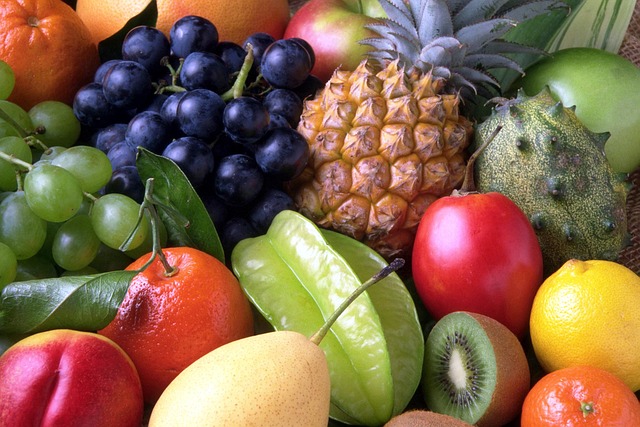Fruits have long been considered an essential component of a healthy diet. They are packed with vitamins, minerals, and fiber that our bodies need to function properly. One common myth that exists regarding weight loss is that fruit is not good when you are trying to lose weight.
This myth is incorrect, as fruit can be an excellent addition to a weight loss diet. The belief that fruit is not good for weight loss likely comes from the fact that fruit contains sugar. However, the sugar in fruit is natural and does not have the same negative effects on the body that added sugars do. Additionally, fruit is low in calories and high in fiber, which can help you feel full and satisfied.
Here are some reasons why fruit is a great addition to a weight-loss diet:
- Fruit is a nutrient-dense food. This means that fruit is packed with vitamins, minerals, and other beneficial nutrients that our bodies need to function properly. By including fruit in your diet, you can ensure that you are getting the nutrients that you need without consuming excessive calories.
- Fruit can help to satisfy your sweet tooth. Many people struggle with sugar cravings when they are trying to lose weight, and fruit can be a great way to satisfy those cravings without consuming excessive amounts of sugar.
It is also important to note that not all fruits are created equal when it comes to weight loss. Some fruits are higher in sugar and calories than others, so it is important to choose fruits that are lower in calories and higher in fiber.
Here are 7 fruits that can aid in weight loss:
- Apples: Apples are high in fiber, which can help you feel full for longer periods of time. They are also low in calories, with one medium-sized apple containing only around 95 calories. Eating apples regularly can help to reduce overall calorie intake, leading to weight loss.
- Berries: Berries such as blueberries, raspberries, and strawberries are packed with antioxidants, which can help to reduce inflammation in the body. They are also low in calories and high in fiber, making them a great choice for weight loss. Berries are also high in water content, which can help to keep you hydrated and feeling full.
- Grapefruit: Grapefruit is a low-calorie fruit that is high in fiber and water content. It is also rich in vitamins and minerals, making it a great addition to any weight loss diet. Eating grapefruit regularly has been shown to aid in weight loss, as it can help to reduce insulin levels, leading to a decrease in appetite.
- Avocado: While technically a fruit, avocado is often considered a vegetable due to its savory flavor profile. Avocado is high in healthy fats, which can help to keep you feeling full and satisfied. It is also high in fiber, which can aid in digestion and prevent overeating.
- Kiwi: Kiwi is a low-calorie fruit that is high in fiber and vitamin C. It also contains a unique enzyme called actinidin, which can aid in digestion and help to reduce bloating. Eating kiwi regularly can help to regulate digestion and promote weight loss.
- Oranges: Oranges are a low-calorie fruit that are high in vitamin C and fiber. They are also high in water content, which can help to keep you hydrated and feeling full. Eating oranges regularly can help to reduce overall calorie intake, leading to weight loss.
- Pineapple: Pineapple is a low-calorie fruit that is high in fiber and bromelain, an enzyme that aids in digestion. It also contains high levels of vitamin C and manganese, making it a great addition to any weight loss diet. Eating pineapple regularly can help to regulate digestion and promote weight loss.
Incorporating fruits into your weight loss diet can be an effective way to reduce calorie intake and stay satisfied. Apples, berries, grapefruit, avocado, kiwi, oranges, and pineapple are all excellent choices that can help you reach your weight loss goals. Try incorporating these fruits into your diet and see how they can help you achieve a healthier lifestyle.


Leave a Reply